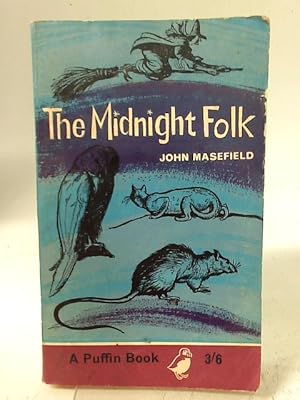

Perhaps as a result of this unhappy experience, Hoffman afterward characterized Judith as “a rather squarely built middle-aged woman in…groundgripper shoes” and Masefield himself as “an anachronism who embodied very parochial British values” and whose “ambitious narratives are hobbled by conventionality.”

His interview took place in a “vestibule” lit by one bare hanging light bulb afterward he was served tea and a “sticky sweet cake.” When he arrived in a steady drizzle at what he describes as “a large, ungainly mock-Tudor structure in brown stucco with a dark roof,” he was mistaken for the TV repairman by Masefield’s daughter Judith.

Though Hoffman appreciated some aspects of Masefield’s poetry, its “moments of fierce anarchic emotion” and “clear and supple verse,” the visit was disappointing. The poet and critic Daniel Hoffman, for instance, visited Masefield in 1961 in order to ask him about Yeats, whom he had known in youth.

Modern Americans, even poets-who might have been sympathetic, since some of them have equally incongruous public and private lives-have been dismissive of Masefield, or have sought him out only because of his connection to other writers. In fact he was gentle, courtly, self-effacing, and fond of books and nature. The private Masefield, moreover, was the opposite of the Masefield projected in his work: the tough, hearty, gregarious old sea dog, full of yarns and tales of adventure in foreign lands or on a sailing ship among rough men in bad weather-or among bad men in rough weather. As soon as he could afford it, he moved with his wife and children to an increasingly grand series of English country houses, where, for the rest of his life, he enjoyed the quiet existence of a rural squire. “I must down to the seas again,” declares the first line of his best-known poem “to the lonely sea and the sky,/And all I ask is a tall ship and a star to steer her by.” But Masefield did not go down to the seas again. Sometimes the charge of hypocrisy is added by those who know that this “poet of the sea” was frequently seasick and that at the age of seventeen he left the Merchant Marine, which had inspired his most famous works, and spent the rest of his life well inland. Today his fiction is forgotten, and his poetry is thought to display the worst qualities of the Georgians: decorum, metrical monotony, conventional morality, and the idealization of Beauty with a capital B. Like many writers of his time, John Masefield outlived his reputation.


 0 kommentar(er)
0 kommentar(er)
